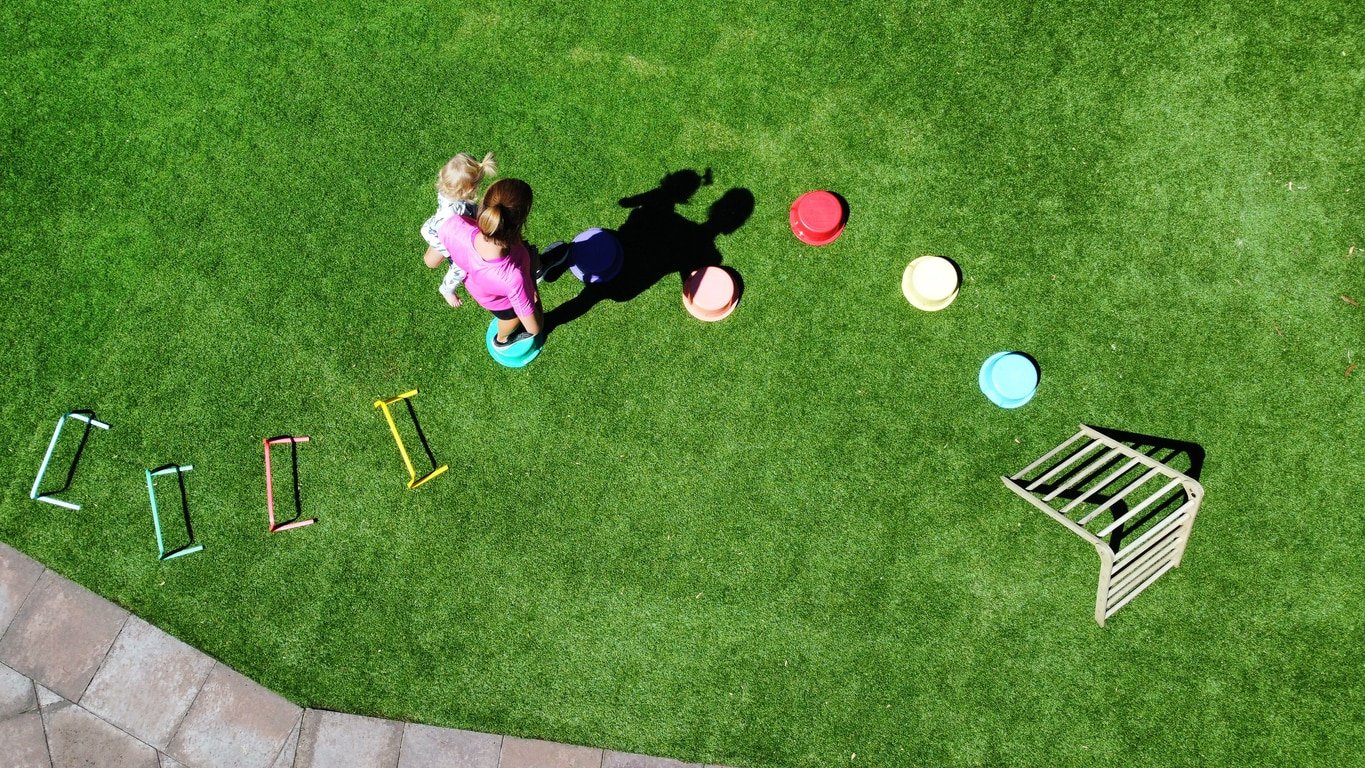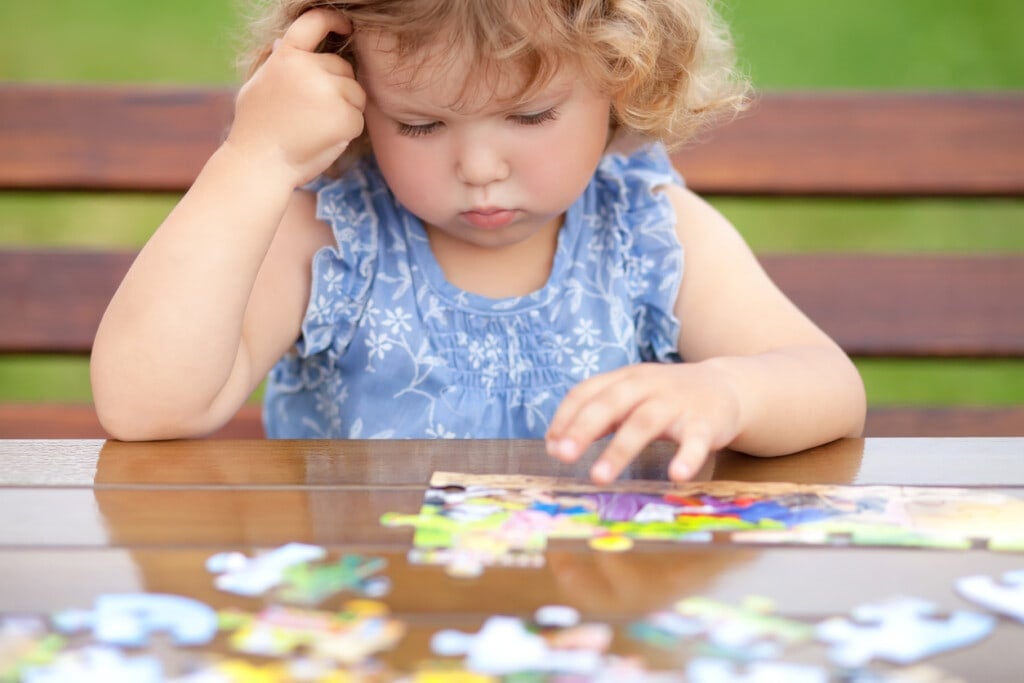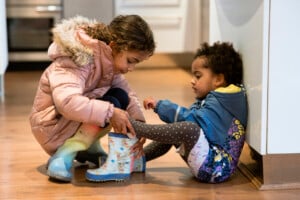Parents and caregivers often find it hard to watch their children struggle. Our instinct is to swoop in and eliminate obstacles they encounter. But is it beneficial or a disservice to our kids when we don’t allow them to independently problem solve? Having independent problem-solving skills can help children to succeed in so many ways.
Why Is Problem-Solving Important?
Problem-solving skills help with academic skills and developing social skills, cognitive skills, and executive functioning skills. Academically, problem-solving skills help kids develop persistence and ways to approach more challenging concepts. Socially, the ability to solve problems allows children to navigate cooperation but also conflict with others — balancing the various interests.1
Regarding cognitive skills, problem-solving helps children expand their creativity and flexibility in approaching problems differently.2 In terms of executive functioning, problem-solving skills help kids make a plan to approach a problem and then carry out the steps to execute the potential solution.3
Problem-Solving Examples
There are many opportunities for kids to practice solving problems daily. An example of social problem-solving is two kids figuring out how to build a tower together. Or it could be kids at the art table at school trying to figure out how to divvy up materials so everyone has equal access and the ability to create.
Then there’s problem-solving when gaining access to something, like when your child is extra motivated to get what they want. What if a child wants a specific snack but can’t reach the shelf it’s on? The potential solutions may include getting a step stool, climbing onto the counter, or finding an adult or older child to help. While some solutions are “safer” than others, allowing children to assess a situation and determine the best solution to their problem is invaluable.
Another example of problem-solving is knowing what to do in safety and well-being situations. I often talk through these scenarios with my elementary-aged child. What do you do if you get lost on the way home from school? What do you do if the fire alarm goes off? While the situation might not occur at that moment, it is sometimes a good idea to problem-solve “what if” situations to help them feel ready.
Problem-Solving Strategies
Children’s problem-solving strategies are very similar to those we use as adults. These include the following:
Trial and Error
Trial and error begins with identifying the problem and brainstorming potential solutions. Once you have this list of possible solutions, you make an educated guess about which one you should start with. Then give it a try! If the solution works, great. If it doesn’t, you simply move on to the next possible solution to try.
Following Instincts
When encountering problems, you don’t always have time to brainstorm and carefully evaluate potential solutions — especially when it involves one’s safety and the safety of others. In these cases, it is often essential to go with your gut. As a parent or caregiver, you can model this strategy and allow your child to practice this to foster that trust within your child.
Asking Questions
Children can ask themselves questions about the task at hand. For example, asking what is working and what isn’t, and what happens if they do something. Asking questions that involve reflection on processes can help clarify what steps to take next or alternative routes.
Accessing Prior Knowledge
This strategy involves looking back at times when a child has experienced similar difficulties. They can reflect on what worked and didn’t work before to help them resolve their present issue.
In general, as a parent or caregiver, you can foster problem-solving skills and strategies by asking open-ended questions, like:
- Why do you think that happened?
- What do you think should happen next?
- What can we change?
- How does that make you feel?
You can then give your child positive feedback for finding the solution and engaging in the problem-solving process.
8 Problem-Solving Games
In addition to solving problems during naturally occurring opportunities, there are plenty of problem-solving games and activities for kids to practice those vital skills. Some of these games include:
1. Jenga

Jenga involves assessing a tower of wooden blocks, determining the safest part of the structure to access, and then carefully executing one’s plan to remove a plank (without the structure falling). It’s a simple game but involves so much of the problem-solving process.
2. Puzzles

Start with simple in-set puzzles for your toddler and build up to more complicated ones as your child ages. Puzzles involve planning and manipulating materials to solve the ultimate problem: How do you arrange many pieces to complete the image?
3. Scavenger Hunts

This activity begins with brainstorming the location of items and then carefully exploring one’s environment to find the items. Each item in a scavenger hunt creates an opportunity for children to engage in problem-solving. You can find printable scavenger hunts online or make your own.
4. Obstacle Courses

Setting up an obstacle course for your child in your home or an outdoor space is a great problem-solving activity. Obstacle courses allow for physical problem-solving and moving your body to reach the end of the course.
5. Mazes

A maze requires planning to determine the path to the exit! Grab your child an activity book with mazes or print some out online. You can sometimes find physical mazes for them to try, too, such as a corn maze.
6. Tangrams/Pattern Blocks

Similar to puzzles, pattern blocks like these involve finding the right pieces and then manipulating them to create an image. Your child has to negotiate space when they put pieces on the board while trying not to disturb the ones they’ve already placed.
7. Rush Hour Traffic Jam

This is a great logic game for kids that helps them develop their problem-solving skills. Each card presents a challenge, and players must plan how to move the vehicles to allow the red car to exit.
8. Keva Planks Brain Builders

This is the best problem-solving activity for budding engineers. Kids take the simple wood planks and try to make the structure shown on the card.
As a parent, I often find it hard to watch my children struggle and get frustrated. But then I remind myself that growth and positive change come from those moments of struggle. And in this case, that growth is in their ability to dissect problems. The hope is that you can raise an independent problem-solver with some guidance and modeling.































